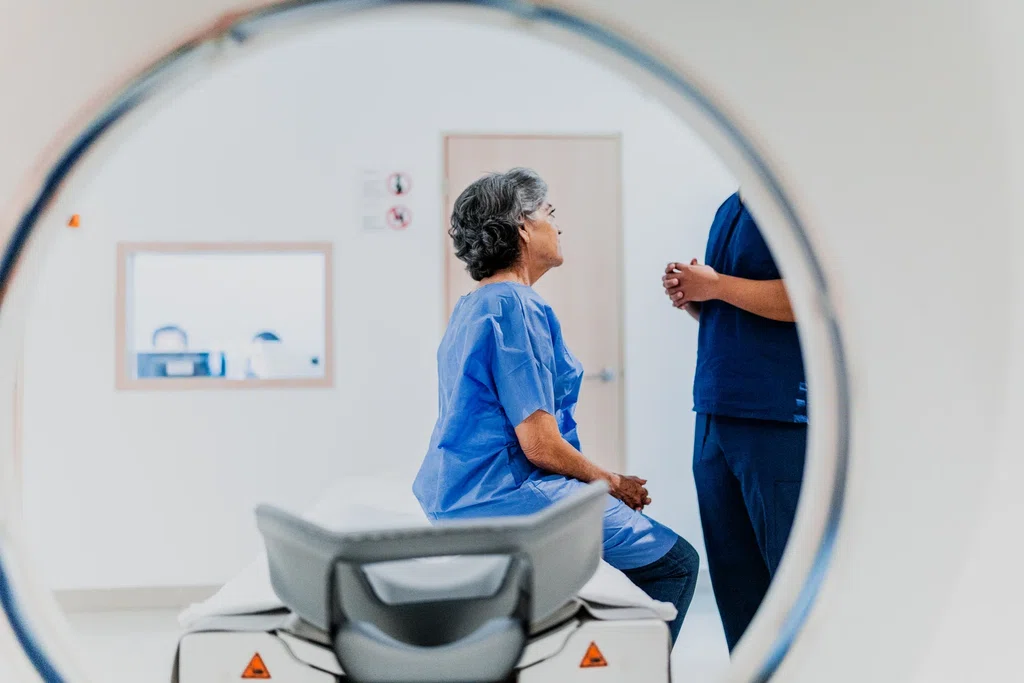


Science in Service
of
Medicineresult
President & CEO Letter
2025 Annual Metrics
Cycle of Translation
Visionary Gifts of Hope


Introduction

Ann Kimball and John W. Johnson Center for Cellular Therapeutics at Houston Methodist

Houston Methodist Dr. Mary and Ron Neal Cancer Center

The Food & Health Alliance within the Houston Methodist Lynda K. and David M. Underwood Center for Digestive Disorders, Immunology Center and the Fondren Inflammation Collaborative

Houston Methodist Cockrell Center for Advanced Therapeutics

Paula and Joseph C. “Rusty” Walter III Translational Research Initiative

Jerold B. Katz Academy of Translational Research

Infectious Diseases Research Fund

George and Angelina Kostas Research Center for Cardiovascular Medicine

New Endowed Chairs Positions

EnMed

Center for Bioenergetics

From Discovery to Clinic


What is "Discovery to Clinic"?

Clinical Research


Houston Methodist Conducts First-Ever Study into a Challenging Situation

Can Regulating Cellular Aging Mitigate Both Cancer and Heart Disease?

Innovative Treatment for Chronic Rhinitis is Safe and Effective


Masters of Disguise: Glioblastomas Trick the Immune System by Masquerading as Reproductive Tissue
Improved Options for Patients with Severe Retinal Vascular Disease

A New FDA-Approved Treatment for Sufferers of Chronic Constipation

Houston Methodist joins the Gulf Coast Consortia

Outcomes, Quality and Healthcare Performance


New Findings on RNA Helicases May Yield New Intestinal Disease Therapy

Houston Methodist and Pennsylvania State University Collaborate on a Smartphone App That Could Revolutionize Stroke Diagnosis

New Frontiers to Improve Cardiovascular Medicine and Disease Management

Ongoing Lessons in a Pandemic

Transplants can Boost Survival Rate of Patients with Unresectable Liver Cancers

Telehealth Video Visits During the COVID-19 Pandemic – a Glimpse into the Future?

SARS-CoV-2 Induced Chronic Oxidative Stress and Endothelial Cell Inflammation May Increase Likelihood of Cardiovascular Diseases and Respiratory Failure

Restorative Medicine


Lessening Pain After Knee Replacement Surgery

Do Motor Neurons First Die in the Brain? Study Provides Clues about ALS Origins

Bringing Back Hand Function in People with Complete Spinal Cord Injury

Novel Vascular Engineering Platforms Are a Boon for Bioengineering

Ultra-high-Resolution Scanner Reveals if Knee Injury Advances to Osteoarthritis

Houston Methodist Model Demonstrates Reversal from Heart Failure State, Creating the Potential for Innovative Treatment Avenues

Precision Medicine


Rapidly Scalable, All-Inducible Neural Organoids Could Facilitate Drug Screening for Neurological Diseases

Importance of the Coronary Artery Calcium Score in Risk Assessment and Prevention of Atherosclerotic Cardiovascular Disease

COVID-19 Infection in Crucial Brain Regions May Lead To Accelerated Brain Aging

Interleukin 9 Secreting Polarized T Cells Show Potential in Solid and Liquid Tumor Treatment

The NanoLymph: Implantable. Adaptable. Anti-cancer

Science in Service
of
Medicine
From the President
2025 Annual Metrics
Cycle of Translation
result
Dr. Mary and Ron Neal Cancer Center
The Cancer Prevention and Research Institute of Texas (CPRIT) offers various funding opportunities for cancer research, product development and prevention programs. Two Houston Methodist researchers received $3.4 million in grants and awards from CPRIT in 2024.

Overcoming Resistance,
Advancing Effective Therapies
Qing Yi, MD, PhD, Ralph O’Connor Centennial Chair and Professor of Cancer Biology, received an academic research award of $1.9M for individual investigator translational research, “Combination Therapy Using ATRA and Carfilzomib to Treat Proteasome Inhibitor Refractory Multiple Myeloma.”
Yi’s research will focus on multiple myeloma—a bone cancer characterized by the accumulation of tumor cells in the bone marrow. Myeloma remains incurable despite the many chemotherapy drugs available. Patients often become resistant to myeloma treatments, including traditional chemotherapeutics and novel agents. Additionally, some patients exhibit initial resistance, not responding to chemotherapy at all. Those who do respond often experience relapses after treatment and succumb to the disease.


Proteasome inhibitors, such as bortezomib and carfilzomib, have good therapeutic efficacy for multiple myeloma, yet their initial response rate in myeloma patients is only 27-48%.
Qing Yi, MD, PhD
Ralph O’Connor Centennial Chair and Professor of Cancer Biology
To overcome resistance and advance the development of more effective therapies, Yi’s team performed a high-throughput screening of 1,855 FDA-approved drugs and found that a treatment used for patients with acute promyelocytic leukemia—all-trans retinoic acid (ATRA)—can overcome human multiple myeloma cell resistance to the current standard-of-care drugs. ATRA alone does not kill myeloma cells.
Yi believes that ATRA may be used to treat patients with myeloma to restore their response to these drugs. The CPRIT grant will be used to conduct a first-in-human phase IB/II clinical trial to determine the safety, tolerability, efficacy and recommended phase II dosing of ATRA/carfilzomib combination therapy to treat proteasome inhibitor resistance in multiple myeloma patients.

Linking Community and Providers
Nestor F. Esnaola, MD, MPH, Diane Modesett Chair and Interim Director, Dr. Mary and Ron Neal Cancer Center, received $1.4M for a prevention grant for cancer screening and early detection, “Cancer Prevention and Outreach for Individuals Disproportionately Affected by Cancer in Medically Underserved Regions (C-CUR).”
The proposed program leverages well-established partnerships and incorporates dissemination and implementation of evidence-based cancer education, screening and early detection, education and patient navigation.
Esnaola’s research will focus on improving cancer screening and prevention education services in urban medically underserved areas (MUAs) within health-disparate populations in Texas, which is a focus of significant and ongoing concern. Low-income individuals residing in Texas MUAs suffer from significantly higher cancer incidence and mortality.
Federally Qualified Health Centers (FQHCs) help address these issues and are critical to the health care safety net. FHQCs reduce the cancer burden within their populations through cancer education, screening and early detection.
With a community-led approach to improve access to cancer-related preventive services through Legacy Community Health, an FHQC, in collaboration with the Cancer Center and the Texas A&M Health Science Center, Esnaola and collaborators hope to make substantial contributions to screening, early detection and reduction of mortality rates for certain cancers, as well as for hepatitis C.

CPRIT project will create a link between the community and clinical providers to make cancer-related preventive services available via three Legacy Community Health FHQCs to patients in the Greater Fifth Ward Lyons, Santa Clara and San Jacinto/Baytown over three years.
Nestor F. Esnaola, MD, MPH
Diane Modesett Chair and Interim Director
Dr. Mary and Ron Neal Cancer Center
Cancer Research Links Community and Providers






















